Introduction
What Do Rabbits Symbolize: Rabbits have long held a special place in the realm of symbolism and mythology across various cultures throughout history. These small, elusive creatures have captured the human imagination with their unique characteristics and behaviors, often serving as potent symbols laden with diverse meanings. In this exploration of what rabbits symbolize, we will delve into the rich tapestry of cultural interpretations, uncovering the symbolic significance of these furry creatures that transcend time and geography. From their associations with fertility and rebirth to their role as tricksters and symbols of luck, rabbits have woven themselves into the fabric of our collective consciousness, offering intriguing insights into the human experience. Join us on this journey as we unravel the symbolic world of rabbits and discover the hidden meanings they hold.
In many cultures, rabbits are symbols of fertility and reproduction due to their prolific breeding habits. Their ability to reproduce quickly and abundantly has often made them emblematic of growth, new life, and the cycle of birth and rebirth. This symbolism is particularly prevalent in ancient Celtic and Native American traditions.The Easter Bunny, a well-known symbol in Western culture, is said to bring Easter eggs to children on Easter Sunday. This tradition is rooted in German folklore, where the “Osterhase” (Easter Hare) would lay eggs for children to find. This association further emphasizes the idea of rabbits as symbols of rebirth and renewal, as Easter is a Christian holiday celebrating the resurrection of Jesus Christ.
Rabbits are often portrayed as clever and mischievous tricksters in folklore and mythology. One of the most famous examples is Rabbit from African-American folklore, who outwits his adversaries through cunning and resourcefulness. This trickster archetype represents intelligence and adaptability in the face of challenges.
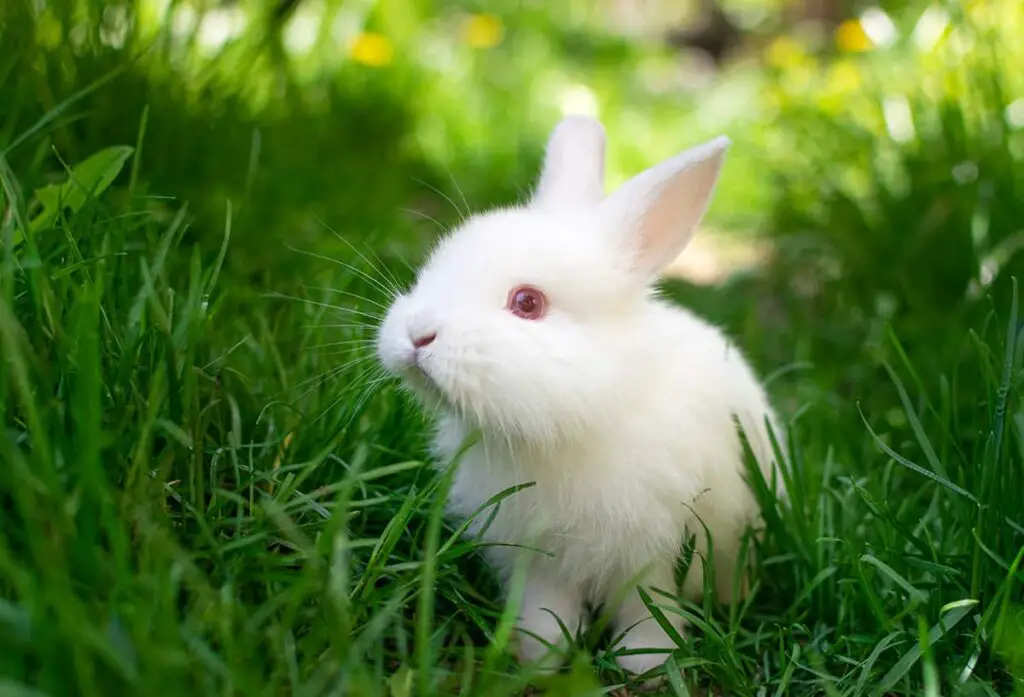
Is rabbit lucky or unlucky?
Rabbits are a common symbol of good luck, positivity, fertility, and growth in many cultures—from North America to Europe and Asia. Most prominent in spring, they are associated with renewal and rebirth after winter.
Lucky Rabbit’s Foot
Perhaps the most well-known symbol of luck associated with rabbits is the “lucky rabbit’s foot.” In some cultures, carrying a rabbit’s foot is believed to bring good luck and protect against misfortune. This belief likely stems from the rabbit’s reputation for being quick and agile, which could be seen as attributes of good fortune.
Easter Bunny
In many Western cultures, the Easter Bunny is a beloved figure associated with Easter celebrations. The Easter Bunny is seen as a bearer of gifts, hiding Easter eggs and candies for children to find. This association with Easter festivities can certainly be seen as a symbol of luck and joy.
Chinese Zodiac
In the Chinese zodiac, the rabbit is one of the 12 animal signs. People born in the Year of the Rabbit are often considered to be gentle, kind-hearted, and lucky. The rabbit is associated with qualities that are generally seen as positive, which contributes to its lucky reputation.
Folklore and Legends
In some folklore, rabbits are depicted as clever and resourceful creatures that outwit their adversaries. This portrayal can be seen as a symbol of intelligence and ingenuity, qualities often linked to good fortune.
Trickster Rabbit
On the other hand, some cultures have stories of trickster rabbits, such as Br’er Rabbit in African-American folklore. These tales often depict rabbits as cunning and tricky, blurring the lines between good and bad luck.
Superstitions
In contrast to the positive associations, there are also superstitions that view rabbits as bringers of bad luck. For example, some people believe that seeing a rabbit cross your path is an omen of misfortune. This superstition is thought to have originated from the idea that rabbits are shy and elusive, and encountering one unexpectedly might disrupt one’s plans.
What do rabbits symbolize in mythology?
The rabbit is often used to symbolise the moon. In ancient times, the Chinese believed there was a rabbit who lived on the moon (known as the Jade or Moon Rabbit). The rabbit was the closest companion to the immortal Moon Goddess, and it would sit with her making medicine by grinding herbs with a mortar and pestle.
Fertility and Rebirth
In many ancient cultures, rabbits were associated with fertility and rebirth due to their prolific breeding habits. Their ability to reproduce quickly and in large numbers made them potent symbols of renewal and regeneration. In Egyptian mythology, the goddess Hathor was often depicted with the head of a hare and was a symbol of fertility.
Lunar Connection
The rabbit is often linked to the moon in various mythologies. In Chinese folklore, there is a legend of the Jade Rabbit that resides on the moon, pounding herbs to create an elixir of immortality. In some Native American myths, the rabbit is seen as a companion to the moon and has associations with lunar cycles.
Tricksters and Cunning
In contrast to their association with fertility and gentleness, rabbits are also portrayed as tricksters in some myths. For example, in African-American folklore, Br’er Rabbit is a famous trickster character known for his clever and cunning ways. This aspect of rabbit symbolism highlights their adaptability and quick thinking.
Symbol of Vulnerability
In some mythologies, rabbits symbolize vulnerability and fragility. Their reputation for being timid and easily frightened makes them a representation of the weak and defenseless. In the famous fable “The Tortoise and the Hare,” the rabbit’s overconfidence and arrogance lead to his downfall, emphasizing the idea that even the swiftest can be brought low by their own hubris.
Easter Bunny and Christianity
In Christian tradition, the Easter Bunny is a symbol of Easter, representing the resurrection of Jesus Christ. The Easter Bunny, much like the rabbit’s fertility symbolism, is associated with new life and rebirth, particularly through the tradition of Easter egg hunts.
Symbols of Prosperity
In some Asian cultures, rabbits are associated with prosperity and good fortune. In Japan, the “rabbit in the moon” is a symbol of abundance and good luck, and it is believed to make mochi, a sweet rice cake, in the moon.
Cultural Variations
The symbolism of rabbits can vary widely between cultures. In Native American folklore, different tribes may have distinct interpretations of the rabbit’s role in their myths. Similarly, in European folklore, rabbits may be associated with different qualities depending on the region.
Is rabbit a spiritual animal?
The rabbit spirit animal typically symbolizes abundance, warmth, and vulnerability, indicating a nurturing side of nature. Rabbit spirit animals hold a special place in many cultures. They often symbolize creativity, intuition, and resourcefulness.
Native American Spirituality
In Native American traditions, different tribes have varying beliefs about the spiritual significance of the rabbit. For some, the rabbit is seen as a symbol of fertility and abundance due to its prolific breeding habits. In other tribes, the rabbit may be associated with cleverness and agility. Overall, the rabbit’s presence in Native American spirituality reflects a connection to the natural world and its diverse qualities.
Chinese Zodiac
In Chinese astrology and spirituality, the rabbit is one of the twelve zodiac animals. Those born in the Year of the Rabbit are believed to possess certain personality traits, including gentleness, compassion, and a peaceful nature. The rabbit symbolizes good fortune and harmony in Chinese culture.
Lunar Symbolism
Across different cultures, the rabbit has lunar associations, often seen as a creature residing on the moon. In this context, it is linked to the mystical and the hidden aspects of life. Its connection to the moon ties it to the cycles of time and the passage of night and day.
Pagan and Wiccan Traditions
In modern Pagan and Wiccan practices, the rabbit is considered a symbol of fertility and rebirth. It is often associated with the Goddess, especially during spring celebrations like Ostara, where the rabbit’s role is akin to that of the Easter Bunny in Christian traditions.
Tales of Tricksters
In various folk tales and myths worldwide, rabbits often appear as trickster figures. They use their wit and cunning to outsmart adversaries, showcasing intelligence and resourcefulness. These tales suggest that the rabbit holds a spiritual lesson about adaptability and thinking on one’s feet.
Animal Totems and Spirit Guides
Some individuals in modern spirituality and New Age practices view the rabbit as a personal animal totem or spirit guide. In this context, it may represent qualities such as sensitivity, awareness, and agility. Those who resonate with the rabbit may seek its guidance for navigating life’s challenges.
Vulnerability and Resilience
The rabbit’s portrayal as a vulnerable and easily frightened creature also holds spiritual significance. It can serve as a reminder of the delicate balance in the natural world and the need for protection and compassion toward all beings.
What traits does the rabbit symbolize?
According to Chinese astrology, rabbits are predicted to be gentle, quiet, elegant, and alert as well as quick, skilful, kind, patient, and very responsible, sometimes reluctant to reveal their minds to others and have a tendency to escape reality, but always faithful to those around them.
Fertility: One of the most prevalent symbolic traits of rabbits is fertility. This symbolism stems from their prolific breeding habits, with rabbits known for reproducing quickly and in large numbers. As such, rabbits are often linked to the idea of new beginnings, growth, and the cycle of life.
Gentleness: Rabbits are generally perceived as gentle and docile creatures. Their soft appearance and non-aggressive behavior contribute to their association with gentleness and tenderness.
Sensitivity: Rabbits are known for their acute senses, particularly their sharp hearing and keen awareness of their surroundings. This sensitivity is often interpreted symbolically as an ability to pick up on subtle energies or changes in the environment.
Agility: Rabbits are incredibly agile and swift animals. Their ability to quickly evade predators and navigate through challenging terrain has led to their association with agility, adaptability, and quick thinking.
Cunning and Trickery: In some cultures and myths, rabbits are depicted as clever and cunning creatures, often using their intelligence to outwit others. Characters like Br’er Rabbit in African-American folklore embody this aspect of rabbit symbolism.
Vulnerability: Due to their small size and timid nature, rabbits are sometimes seen as symbols of vulnerability. Their portrayal in this context serves as a reminder of the fragility of life and the need for protection and compassion.
Moon Symbolism: Rabbits are occasionally associated with the moon in various cultures, particularly in Asian traditions. In these contexts, they may symbolize the mysterious and mystical aspects of the night.
Rebirth and Renewal: Rabbits are connected to the idea of rebirth and renewal, particularly in springtime. This association is evident in customs like Easter, where the Easter Bunny is a symbol of new life and the resurrection of Jesus.
Cautiousness: Rabbits are known for their cautious and timid behavior, often relying on their instincts to stay safe. This trait can symbolize the importance of careful consideration and mindfulness in navigating life’s challenges.
Community and Family: Since rabbits are social animals that often live in warrens and raise their young collectively, they can symbolize the values of community, family, and cooperation.
Peace and Harmony: Due to their gentle nature, rabbits are sometimes seen as symbols of peace and harmony. Their presence is associated with a sense of tranquility and calm.
Intuition: The rabbit’s sensitivity and ability to detect subtle changes in its environment can be interpreted as an embodiment of intuition and heightened awareness.
Is rabbit good according to Vastu?
According to legends, keeping a rabbit at home Vastu promotes purity and good fortune. Additionally, by removing bad energy from the home, the communication of positive energy is increased, if you keep a rabbit. The rabbit is seen as a symbol of pleasure and success in Vastu as well.
Location of Rabbit Enclosure: If you keep rabbits as pets and have an enclosure for them within your home or on your property, it’s essential to consider the location. According to Vastu, the north or northeast direction is generally considered auspicious for living spaces. So, if you have a dedicated space for your rabbits, placing it in these directions is recommended for positive energy flow.
Cleanliness and Hygiene: Vastu places a strong emphasis on cleanliness and hygiene. Ensure that the area where you keep your rabbits is clean, well-maintained, and free of clutter. A clean and organized space promotes positive energy and wellbeing.
Balance and Harmony: Vastu seeks to create balance and harmony in living spaces. Ensure that the presence of your rabbits does not disrupt the overall balance of your home or environment. Their enclosure should be well-integrated into the overall design and layout of your living space.
Noise and Disturbance: Rabbits are generally quiet animals, but they can make occasional noises. Vastu advises minimizing noise and disturbances in living spaces to maintain tranquility. Ensure that your rabbits’ activities do not create excessive noise that could disrupt the harmony of your home.
Natural Light and Ventilation: Vastu encourages the use of natural light and ventilation in living spaces. Ensure that the area where your rabbits are kept receives adequate natural light and airflow, as this promotes a positive and healthy environment for both your pets and your living space.
Positive Energy Flow: Vastu emphasizes the importance of positive energy flow (prana) in a home. Ensure that the presence of your rabbits does not obstruct the flow of energy through your living space. Avoid placing their enclosure in a way that creates energy blockages.
Vibrational Harmony: Some individuals who follow Vastu principles may also consider the vibrational harmony of animals and their impact on the overall energy of a space. In this regard, the presence of pets, including rabbits, is believed to contribute positively to the energy of a home, fostering love and companionship.
Are rabbits good or bad at home?
Rabbits make great pets. In general rabbits need appropriate housing, exercise, socialisation and a specific diet for good welfare. Some breeds of rabbits, particularly the longer haired rabbits, may require daily grooming.
Pros of Having Rabbits at Home
Affectionate Companions: Rabbits are known for forming strong bonds with their owners. With proper socialization and care, they can become affectionate and loving pets.
Low Maintenance: Rabbits are generally low-maintenance compared to some other pets. They are litter-trained easily and don’t require daily walks like dogs.
Quiet and Clean: Rabbits are relatively quiet animals. They don’t bark or make loud noises, which can be ideal for people living in apartments or shared spaces. They also groom themselves frequently, promoting cleanliness.
Educational for Children: Having rabbits can be an educational experience for children. They can learn about responsibility, empathy, and animal care by taking care of rabbits.
Eco-Friendly: Rabbits produce natural fertilizer that can be used in gardens, making them eco-friendly pets for those interested in sustainable gardening.
Entertaining Personalities: Rabbits can be playful and entertaining to watch. Their curious and active nature can bring joy to your home.
Long Lifespan: With proper care, rabbits can live for 8-12 years or even longer, providing lasting companionship.
Cons of Having Rabbits at Home
Chewing Habits: Rabbits have a natural instinct to chew on things to keep their teeth healthy, which can lead to damage to furniture, cords, and other household items if not properly managed.
Space Requirements: Rabbits need adequate space to move around and exercise. A small cage or confined space can lead to health problems and behavioral issues.
Allergies: Some individuals may be allergic to rabbit fur or hay, which is a common part of their diet.
Time and Attention: Rabbits require social interaction and mental stimulation. Neglecting their social needs can lead to loneliness and depression.
Health Care: Like all pets, rabbits need regular veterinary care. Health issues can be costly, and finding a vet experienced in treating rabbits may not be easy in all areas.
Which God has a rabbit?
Eostre (Anglo-Saxon) – in antiquity, worshipped in a spring festival; “Also known as: Eastre, Goddess of the Spring. Protectress of fertility, goddess of rebirth and friend to all children. To amuse children, Eostre changed her beautiful pet bird into a rabbit.
Representation: Goddess Shashthi is commonly depicted as a beautiful woman riding a hare or holding a rabbit in her arms. The rabbit is often portrayed as her divine vehicle or companion.
Fertility and Child Protection: Shashthi is primarily worshipped for her protective and nurturing qualities. She is believed to safeguard the well-being of children, especially infants, and ensure their health and longevity. As a fertility goddess, she is also invoked to bless couples with healthy offspring.
Worship Rituals: Devotees of Shashthi celebrate her through various rituals and festivals. In West Bengal, a popular festival called “Shashthi Puja” is dedicated to her, where mothers observe fasts and pray for the well-being of their children. Images or idols of Shashthi are worshipped during this festival.
Rabbit Symbolism: The rabbit or hare, as the vehicle of Shashthi, represents swiftness and agility. It is believed that Shashthi can quickly come to the aid of those who call upon her, much like the rapid movements of a hare.
Regional Variations: While Shashthi is primarily associated with the regions mentioned earlier, her worship and symbolism can vary from place to place. In some traditions, she may be referred to as “Goddess Six” (Shashthi in Bengali), while in others, she may have different names or forms.
Religious Syncretism: In some cases, Shashthi is also associated with other deities or goddesses, merging elements of her worship with that of other goddesses such as Durga or Parvati.
What does God say about rabbits?
The rabbit, though it chews the cud, does not have a split hoof; it is unclean for you. And the pig, though it has a split hoof completely divided, does not chew the cud; it is unclean for you. You must not eat their meat or touch their carcasses; they are unclean for you.
Christianity
In Christianity, God’s attitude toward animals, including rabbits, can be inferred from passages in the Bible that emphasize God’s role as the creator and caretaker of all living creatures. For example, in Genesis 1:25, it is written, “God made the wild animals according to their kinds, the livestock according to their kinds, and all the creatures that move along the ground according to their kinds. And God saw that it was good.” This passage suggests that God values and appreciates all of His creations, including rabbits, as part of His creation.
Christian teachings also include principles of stewardship and compassion for animals. While there are no specific directives regarding rabbits, believers are often encouraged to treat animals with kindness, not to cause unnecessary harm, and to care for God’s creation.
Islam
In Islam, there are also teachings about the importance of compassion and responsibility toward animals. The Quran acknowledges that animals, like humans, are communities unto themselves and are part of God’s creation. For example, in Surah Al-An’am (6:38), it is stated, “There is not an animal on the earth, nor a bird that flies on its wings, but they are communities like you.”
The Prophet Muhammad (peace be upon him) emphasized the humane treatment of animals, including rabbits. There are Hadiths (sayings and actions of the Prophet) that encourage kindness, mercy, and proper care of animals.
Hinduism
In Hinduism, animals are viewed as manifestations of the divine, and there is a strong emphasis on the interconnectedness of all living beings. The concept of “ahimsa,” or non-violence, is a fundamental principle of Hinduism. It encourages believers to avoid causing harm or suffering to any living creature, including rabbits.
The rabbit, while not as prominent as some other animals in Hindu mythology, is generally treated with respect and care. It is seen as a creature of God and is included in the broader framework of Hindu teachings on compassion for all animals.
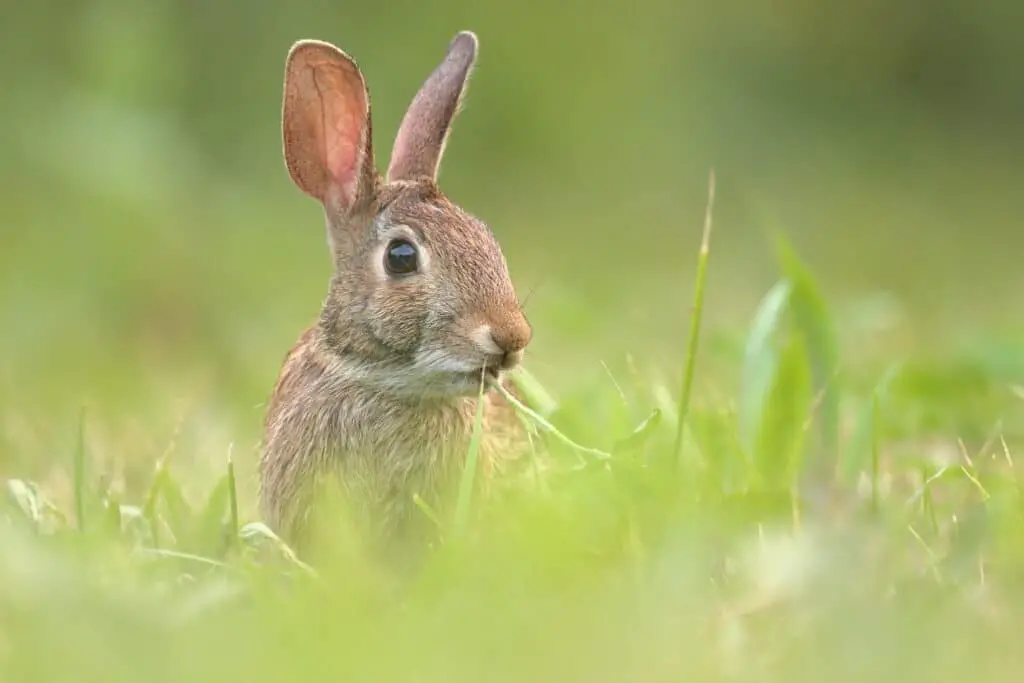
Conclusion
The symbolism of rabbits is a rich tapestry woven with diverse meanings that span across cultures, traditions, and time periods. These small, enigmatic creatures have captivated human imagination, serving as potent symbols that resonate with various aspects of the human experience. From their associations with fertility and rebirth, exemplified by the Easter Bunny, to their portrayal as clever tricksters folklore, rabbits embody a range of symbolic interpretations.
Rabbits also carry with them the aura of good luck, swiftness, and agility, as well as a sense of vulnerability and innocence. Their connection to the moon in East Asian cultures further deepens their symbolism, while in Native American traditions, they represent balance and harmony within the natural world.
Ultimately, what rabbits symbolize is a testament to the versatility of symbolism itself, as it allows us to project our hopes, fears, and values onto these small, furry creatures. Regardless of the specific interpretation, rabbits continue to be enduring symbols that reflect the complexity and depth of human culture and the enduring fascination with the mysteries of the natural world.

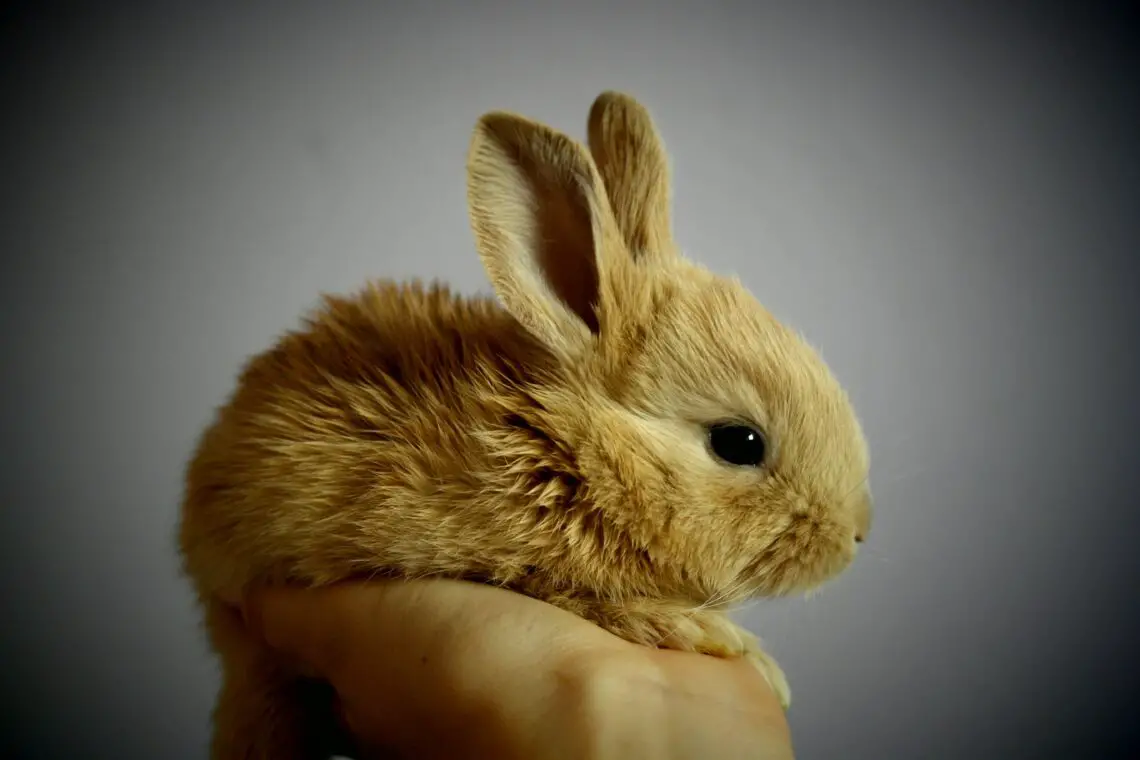
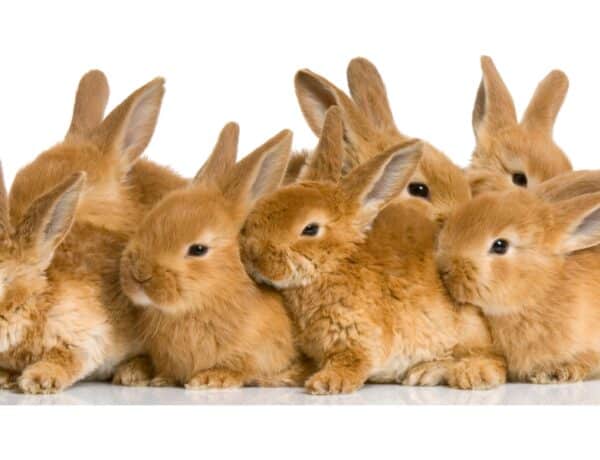
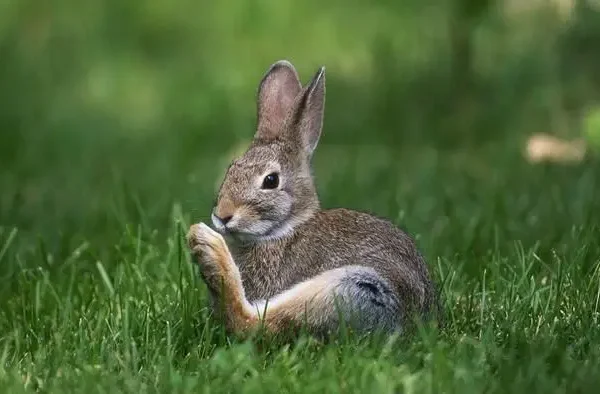

No Comments